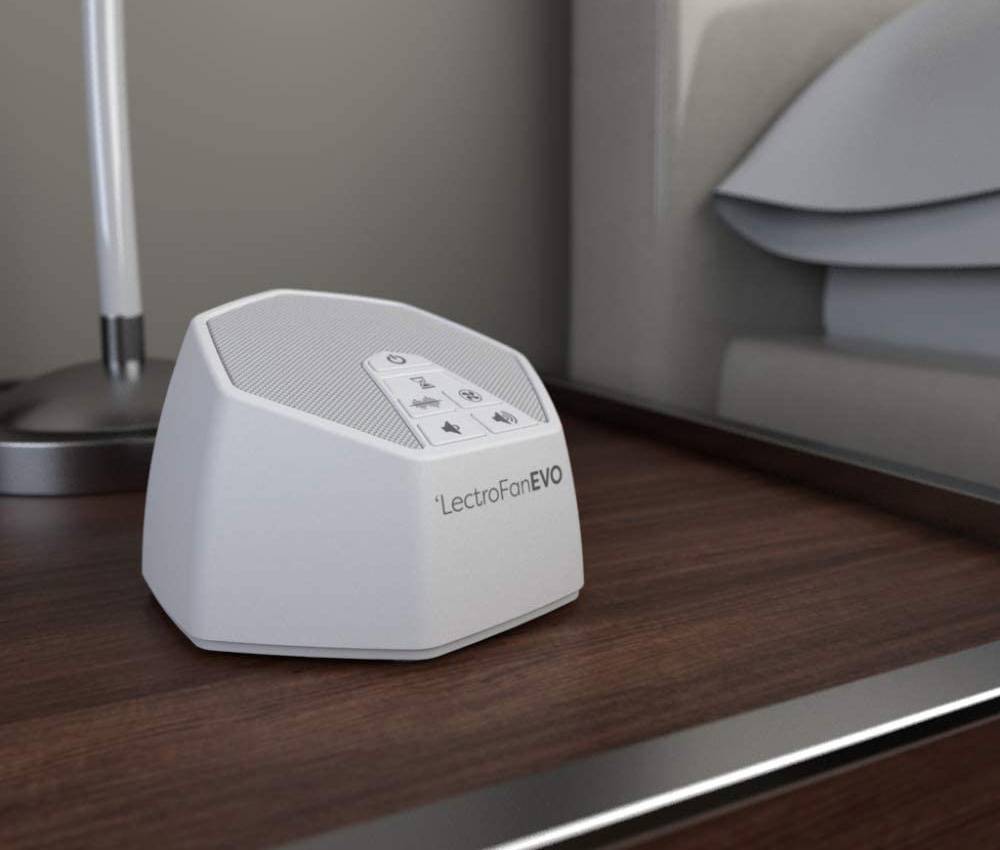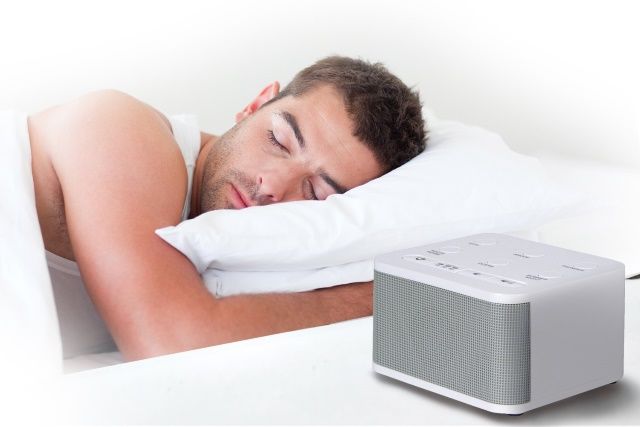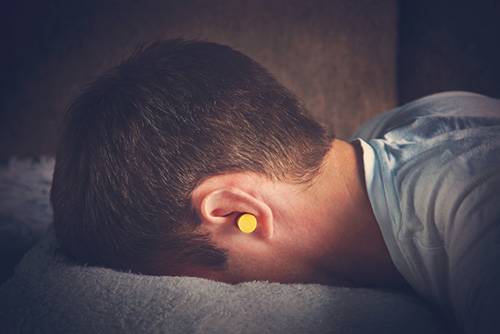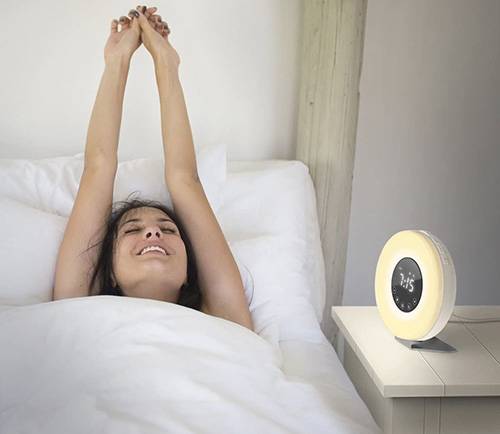Nothing is worse than being bone-deep tired after a long day of work and study, but find you have to contend with persistent noise when trying to get some rest. Whether you have loud housemates, neighbors, traffic, work nights and need to sleep during that day, or all of the above- you need to find a solution to get the sleep you deserve.
It may be hard to problem solve when you are struggling with a lack of rest, but rest assured (pun intended) we have some solutions that might come in handy. Take a look at the steps you can take below to improve your sleep quality, as well as the reasons why you need to take them seriously.
How Our Brain Processes Noise
You don’t just ‘hear’ noise, your brain processes sound, which means it is in constant state of recognition, filtration, and processing whenever sound is present. This is especially true when exposed to inconsistent noises and volumes. Low volume sounds, consistent ‘white noise’, or other noises that are brief in nature are recognized, but may not stimulate the brain to continue working in the same manner- and may not be noticeable or remembered by you when you wake.
However, noises that are persistent, change in volume, and last for longer than just brief seconds can be problematic. These interrupt your brain’s sleep cycle as it takes over the problem solving of distinguishing noise and turning into something you recognize. By no means is this a simple process, and activates areas of the brain that would normally be ‘resting’ while you sleep.
While you sleep, it isn’t just your body that is resting, it is also your brain. Allowing both to pause, without action each night is incredibly important for your overall health.
The Dangers of Sleep Deprivation
You all know the feeling of not quite getting enough sleep one night and feeling groggy and slightly out of it the next morning. Usually some coffee and your morning routine snaps you out of the worst of it, but lingering tiredness may creep up on you through the day.
This is typical and a normal response, and generally most people catch back up and get the proper amount of hours caught back up within a few days. However, if your sleep is being interrupted night after night by noise, or you struggle to get to sleep due to noise, those missed hours are going to add up- and before too long, you’ll be sleep deprived.

Steps to Help You Sleep in a Noise Disrupted Environment
If all your efforts to stop the noise from happening are in vain, and you’ve come to the conclusion you’re just going to have to deal with it- don’t give up hope yet! No matter the root cause of your nocturnal noises- rude, disrespectful neighbors; city traffic; barking dogs; or simply the local your home happens to be in- there are steps you can take to help gain back control of your night.
1. Breathing Exercises and Meditation
Sometimes it isn’t just the noise, but the body’s response to it that can keep you awake. Being woken suddenly issues a flight or fight response, and can create a feeling of anxiety that will keep you awake. You also might be frustrated at the noises that are persistent, and become stressed or angry when all you want to do is sleep.
Consider taking control of your own response to help you relax and deal with the interruption, or frustration in a more productive manner. To do this, you might want to turn to mediation and breathing exercises that are focused on refocusing your initial emotions and help you to relax.
Meditation is a practice that can help you blackout your surroundings, help calm your mind and body, and increase oxygen circulation through your body to help lower blood pressure. Visualizing the release of tension can relax muscles, and the entire experience can leave you less agitated, more in control, and may even allow you to ignore what is bothering you.
2. Noise Cancelling Earplugs
There are many physical aids that can help you cover up outside noise sources. Comfortable foam or silicone earplugs are very effective in muffling and cancelling out many noises, headband style sleep masks often have soft speakers built in to allow you to play nature sounds, listen to soft music, or follow along with sleep podcasts. These are almost always timed to turn off after a certain amount of time to keep from waking you if you have drifted off, or keep your brain involved with the sound.
If you are not keen on forcibly blocking the noise because you don’t want to ignore sounds you feel you may need to hear (such as a child), then consider downloading a sleep app or taking advantage of programs built into smart home systems to play gentle music or read a chapter from a book while you lay in bed and relax.
3. Sound Machines

There are also other types of ‘colors’ to consider- such as brown noise, or pink noise. These are options that differ slightly and if white noise isn’t for you- one of these others ones might work out well for you.
4. Regular Exercise
You might be tired, but a lot of missed sleep results in an anxiety ridden exhaustion that can be distracting when you do try to sleep. Even if you are tired, try to keep to a regular exercise routine. This doesn’t mean you need to go for a 5 mile run, cycle, or weight train. Instead, replace the intense workouts you wish you had the energy for with a comfortably placed walk.
Intense workouts can induce endorphins and actually wake you up- the opposite of what you are going for. Instead, you want to allow your muscles to stretch out and be used, but not be pushed or challenged. Your goal is to feel relaxed after a low impact exercise, not worn out. And if you combine this with some relaxation techniques and meditation, you might be able to ignore the noises that usually keep you awake.
5. Keep to a Bedtime Routine
A bedtime routine is important to keep as well. Try to start getting ready for bed each night at the same time, avoid screens (and blue light) for at least an hour before bed, dim your lighting in the house to mimic sunset and induce sleep hormones, and then go to bed. If you like to bathe or shower before bed, do so in warm to hot water to help draw heat to the surface of your body and cool your core. You can also lower the temperature in your room as your body relaxes further in the ideal ambient temperatures between 65 and 72 degrees.
Bedtime routines work wonderfully well with other aids- such as sound, exercise and meditation. In fact, you can combine just about all these steps to help create the best sleep environment possible.
6. Sound Absorbing Materials
Soft surfaces absorb sound, so might want to consider where your noise is coming from. If it is from your windows, use thick curtains designed to block both sound and light. If it is through your door, consider a door covering you can draw closed each night as well. Using wall hangings, tapestries, and having other furniture in your room with pillows and thick cushions can be surprisingly effective to help muffle sounds.
7. Speak With a Medical Professional
If you have seriously tried everything, and still are bothered by noises while you sleep, you might want to speak with a medical professional as well. If you are anxious and feeling depressed over the entire thing, a good counselor may have suggestions and options to help provide you an outlet for these feelings.
You may also be offered OTC sleep aids, or even a prescription to help you get the sleep you need. These are generally a short lived script that will allow you to get back on track to find solutions to persistent noise disruptions.
Conclusion
If you are struggling to sleep due to regular night time distractions attributed to noise, you need to take some steps to help alleviate your discomfort. As unfair as it may seem that there are others who will be disrespectful of your rest, you still need to get sleep to help you properly function. And if your nightime interruptions are out of your control to try and stop- you have to find a solution in order to rest.
These steps all work well on their own, or better yet, when combined with one another to help you muffle and block noise. Take advantage of these suggestions and wake more refreshed and ready to take on the day.
Photo credit: Tero Vesalainen/Shutterstock; Stock-Asso/Shutterstock;
Damir Khabirov/Shutterstock; diy13/Shutterstock;
Leszek Glasner/Shutterstock; Branislav Nenin/Shutterstock;









